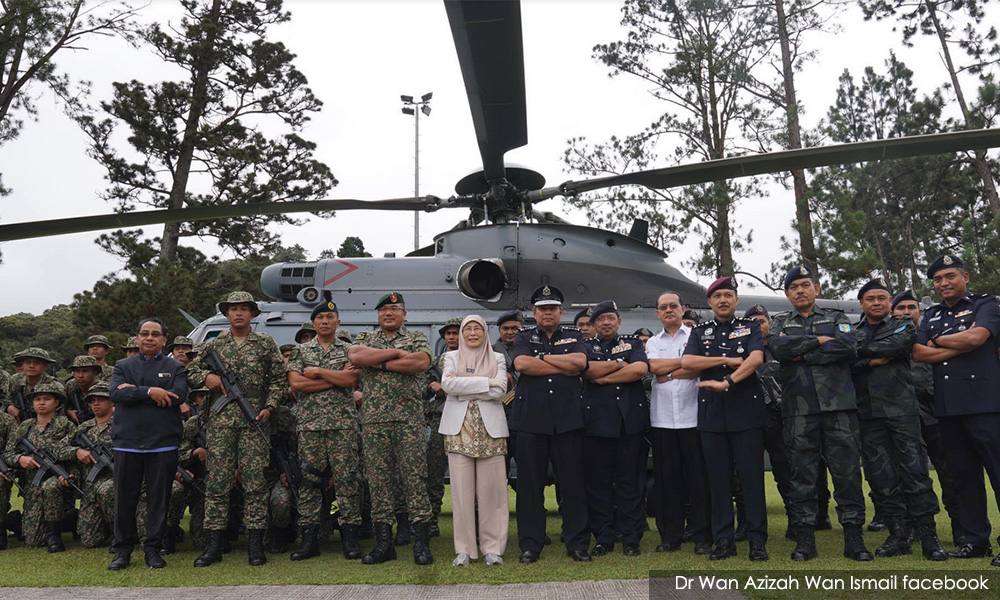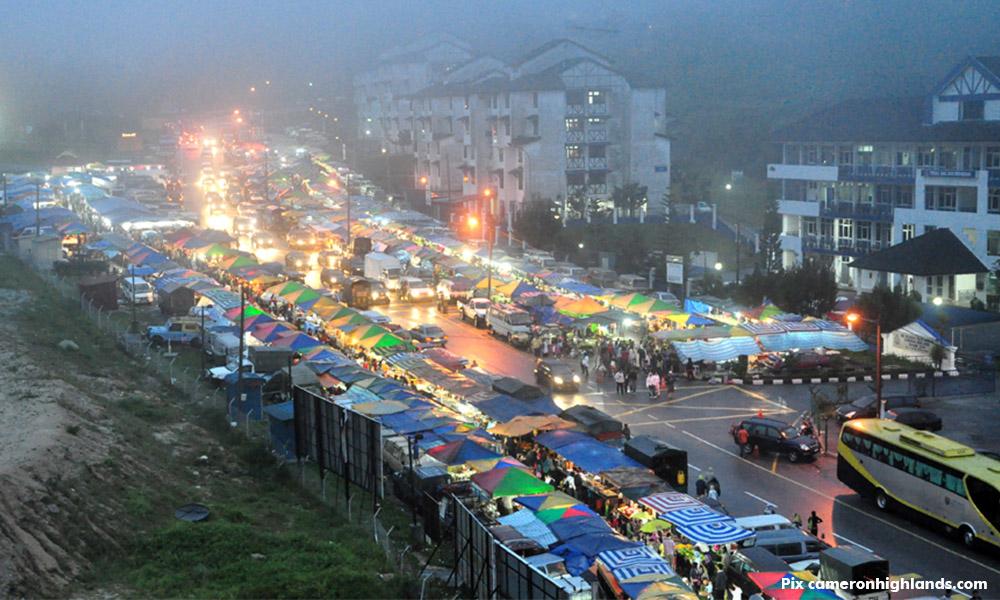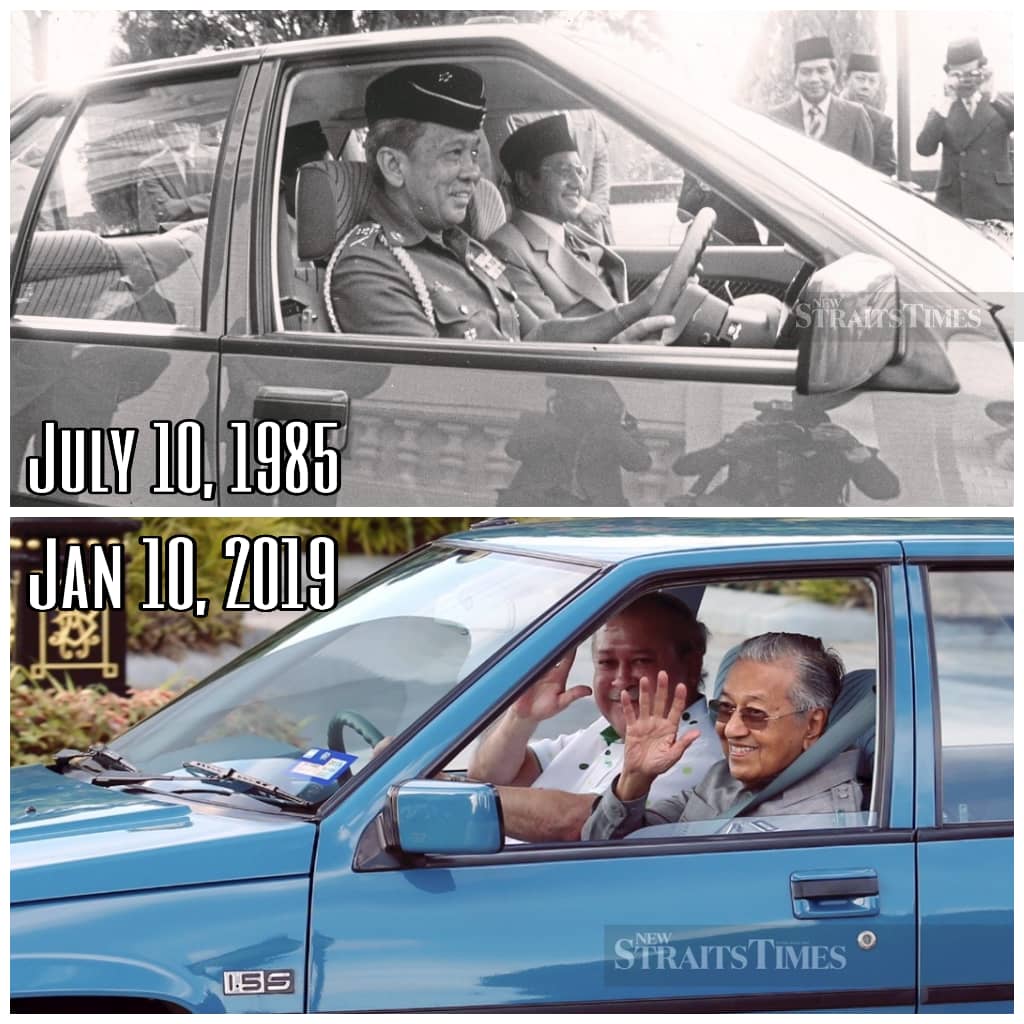PH mewakilkan kepada DAP untuk berhadapan dengan calon BN. BN kali ini tidak mewakilkan kepada MIC tetapi meletakkan calon langsung BN, seorang Orang Asli, Ramli Mohd Noor. Manakala PH telah menurunkan semula calonnya dalam pilihan raya lalu, M Manogaram.
Parti agama (Pas) sehingga catatan ini dibuat, belum mengumumkan calonnya. Dalam pilihan raya lalu Pas dan Berjasa turut meletakkan calon masing-masing di kerusi berkenaan. Tanggungjawab Pas dan Berjasa menyertai pilihan raya dahulu adalah jelas untuk menyelamatkan akidah pengundi.
Kemungkinan Pas tidak akan meletakkan calonnya dalam pilihan raya kecil ini. Banyak sebab kenapa parti itu tidak meletakkan calon, utamanya kerana parti itu ketiadaan wang. Parti itu kini sedang mengumpulkan wang untuk membayar lawyer dalam samannya terhadap Sarawak Report. Daripada membazirkan wang di Cameron Highlands, baik digunakan untuk ke Landon.

Keduanya, Pas tidak perlu meletakkan calonnya kerana BN telah meletak calon Orang Asli beragama Islam. Jadi penyokong Pas yang gian untuk mengundi dalam pilihan raya itu terselamat daripada berdosa kerana BN telah meletakkan calon Orang Asli beragama Islam. Orang Pas sangat jaga pintu syurga.
Mengenai Pirake itu ada beberapa perkara menarik untuk direnungi. Salah satu kita mahu tenguk sejauh mana kekompatan orang Melayu dalam pilihan raya itu.
Baru-baru ini diadakan himpunan kesyukuran kerana ICERD tidak dilaksanakan. Himpunan itu menunjukkan Melayu sudah bersatu. Lebih 350,000 berhimpun di Kuala Lumpur. Apakah semangat ICERD itu akan dinyatakan dalam pilihan raya kecil itu.

Dalam kawasan itu pengundi Melayu mewakili 34%, manakala Cina 29%, India 15% dan Lain-lain termasuk Orang Asli 22%. Melihat kepada taburan ini, ia memberi petanda baik untuk calon BN memenangi pilihan raya itu. Di sinilah nanti ia akan dilihat apakah perpaduan Pas dengan Umno menerusi ICERD itu jadi atau tidak.
Katakan 90% undi Melayu dan 20% undi Orang Asli mengundi calon BN, tanpa sokongan Cina dan India pun, calon BN akan menang. Cuma yang menjadi persoalannya kini apakah, Orang Asli akan teruja dengan calon BN dari suku kaumnya itu? Secara simplistiknya apa yang BN perlu pastikan kini undi Orang Asli dikuasainya. Dan ini mungkin tidak jadi masalah kerana calonnya ialah Orang Asli yang bermisai lebat.
Jadi pilihan raya kecil itu secara tidak langsung menjadi indikator apakah ICERD mempengaruhi pilihan raya itu dan sejauh mana pula Orang Asli akan sedia mengangkat calon dari sukunya sendiri. - MSO

How not to win Cameron Highlands...
Over the past week, many government ministers have made special visits to Cameron Highlands. When probed on whether these moves were made for the coming by-election, the ministers said in concert that everything was a coincidence.
Of course, our principle instinct will be triggered due to the proximity of time and place. The large-scale and heightened focus by ministers on Cameron Highlands is too close to the by-election to not raise suspicions that there is a violation of the principle of misusing government machinery for political gain.
The basic principle is that government machinery is reserved only for the people, not for political parties. A large amount of Indian ministers making special ministerial visits to a seat with unusually high Indian voters also exacerbates this suspicion.
However, the argument of misusing government machinery meets two obstacles. Which is political, which is ministerial? One, the ministerial visits are at best a veiled political operation. In other words, it is difficult for us to delineate the single act of visitation as either falling under ministerial or political. The same case applies to most of what a minister does.
When Transport Minister Anthony Loke announced the popular RM100 unlimited public transport pass, other than fulfilling the ministerial function of alleviating the burden of everyday commuters, there is also undoubtedly a political benefit that increases his personal popularity at the polls.
Under such instances, you cannot ask him to reverse this ministerial act simply because it benefited him politically. All popular ministerial acts come with an in-built political advantage and any legislative prohibition against these acts may be palatable on paper but undesirable in practice.

Notwithstanding that, you may say that the ministerial visits to Cameron Highlands are different because of the proximity of time and place - to which I agree. But once again, it seems that the delineation remains difficult since we can hardly regulate where and when a minister visits.
It would be disingenuous to suspend all ministerial activities simply because there is a by-election. The only way to stop this is to rely on the integrity and ethical boundaries of individual ministers. I personally still hold a principled objection against such election-driven visits, but I am aware of the practical difficulties of separation.
The heartless battlefield
Two, we know the battlefield doesn’t call for higher principles. If you’re a reader of the most successful war manual in the world, The Art of War, then you know that winning is about swiftness and effectiveness and less about higher principles. This means that any politician will maximise their advantage to ensure they secure a victory, and this includes using government machinery.
What more if we understand that the coming by-election is a war the government must win. It is the first by-election in a seat that Pakatan Harapan didn’t previously win, and that the government would want to hide the grouses on the ground by securing a victory.
The Cameron Highlands by-election is an unofficial barometer of how the people feel after almost a year of Harapan’s administration. And all indicators are pointing towards a uniform dissatisfaction even from Harapan’s most reliable base, the Chinese voters.
If this is a war, then using all weapons and advantages available makes sense, especially when your weapon is only government machinery in the form of visits, activities or announcements; not chemical weapons.
However, my real concern is less about those and more about whether using government machinery is any real advantage at all. I’m seriously questioning the effectiveness of these visits and potential project announcements so close to a by-election.

Doubtful effectiveness
We have learnt enough from Najib Abdul Razak’s 2018 GE campaign that project and benefit announcements while maximising government machinery use may not be what tilts the balance in your favour. Najib thought that it was, and he announced an unending list of benefits even until the final hour just before the campaign period closed. None of it worked.
This is not a coincidence. Campaigns are won by changing minds individually through tailor-made messages to persuade them to vote in a particularised manner. And different groups within a single locality require different messaging techniques.
To simply announce projects or benefits to all will not work; what more a simple ministerial visit to an area.
Although Malaysian voters may appear feudal and will populate the places where the ministers visit, the effectiveness in converting the fence-sitters into voters is highly questionable.
Politicians may still imagine that voters, especially those in rural areas, are wide-eyed commoners who look up to their wealthy and powerful masters but I would urge them to re-examine the logic that ministerial visits or projects actually convert voters into supporters.
Using government machinery is a risk because it will inevitably invite claims of abuse and misuse at every juncture. And if taking such a risk doesn’t at all yield the outcome you want (attracting votes to win), then this is not a risk worth taking. - James Chai




Credit: http://bit.ly/2TKKSa8







{ 0 comments... read them below or add one }
Post a Comment